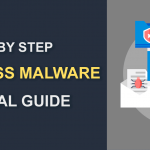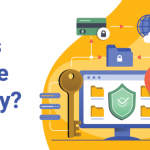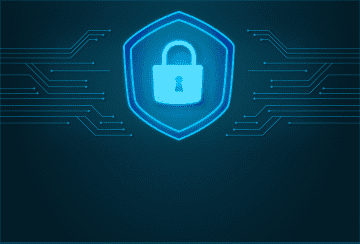Scan Website for Malware Attack
October 21, 2022 | By Admin

Business Website Scan for Malware Attacks
Digital security certificates ensure that the websites are genuine and authorized and malware-free. Users find it as a trust factor that the website they visit is safe and secure. However, considering that digital security certificates are compromised, how can users be secured from such compromised websites?
The current digital security certificates that data transmitted between the website owners and the website visitors are encrypted and can be decoded only by private keys which are accessible only by the website owners. The encryption will help to protect sensitive business or customer-related information that gets transmitted through the website
In the meantime, present-day antivirus programs instantly terminate sites that are not secured by such certificates, with this the hackers find it a challenge to inject malware code into devices utilizing the infected site.
As per a senior consultant from KPMG, security certificates are considered to be a key trust-worthy factor because they require strict validation of payment and identity proof. The certificate is verified to check if it genuinely belongs to that intended entity – organization or person, that is mentioned in the certificate'. This prevents hackers from attacking the website.
To compromise a huge number of users' data, cyber-criminals are trying methods and techniques to steal security certificates or create their own security certificates marked by a Certificate Authority, they would then be able to utilize such testaments to dodge antivirus protection systems and to contaminate a large number of site visitors with malware.
This works best for hackers because, when antivirus software identifies a security certificate in place, they do not scan the website for malware activities. This enables hackers to exploit the website for a free run.
'With an authentication, the malware is permitted to run. Bypassing these advancements can give way to a digital criminal association to establish a security breach'.
With legitimate certificates being the source for hackers to enter, hackers find ways to steal genuine certificates and further using it to sell certificates to cyber-criminals. There are reports that some cyber-security breaches have happened recently just by exploiting the use of stolen legitimate digital certificates.
Try cWatch Website Security Scan
'The implementation of genuine certificates can stay a standout amongst the best approaches to sidestep protection measures and keep malware running in the framework under the radar,' says Marta Janus, senior threat specialist at Cyclance.
'stealing certificates is not a complex task, so at first, this method used to be discovered basically in advanced targeted threats. It's not surprising that digital-criminals understood the potential esteem that genuine security certificates can have on the underground market, and have found ways and techniques to loot such certificates.
Related Resource

 (18 votes, average: 4.83 out of 5)
(18 votes, average: 4.83 out of 5)










